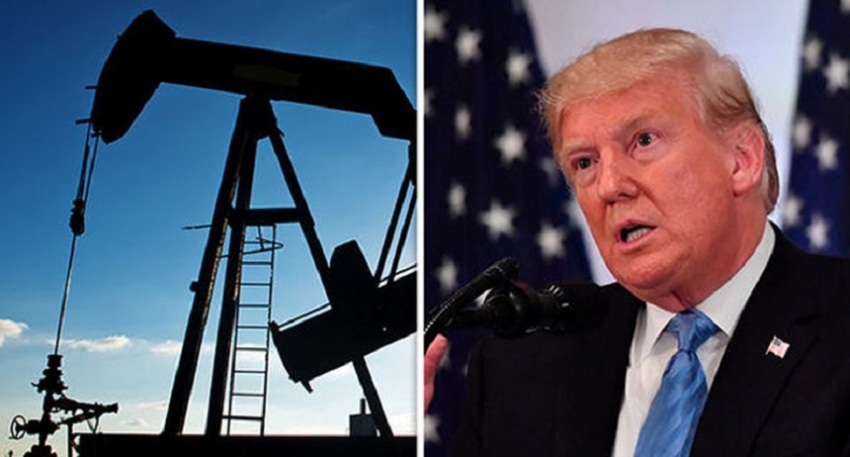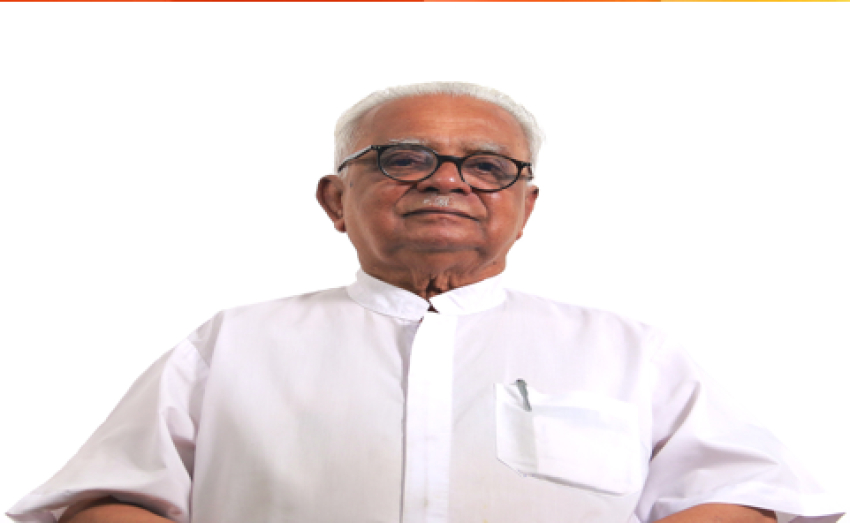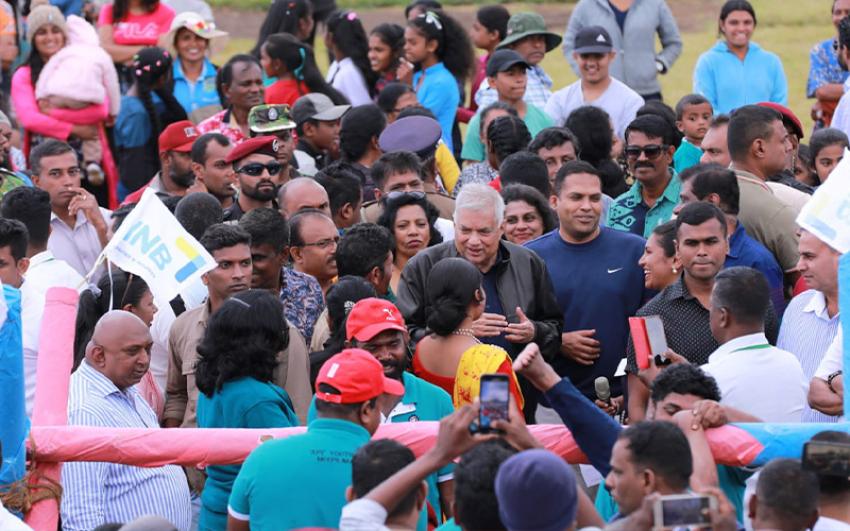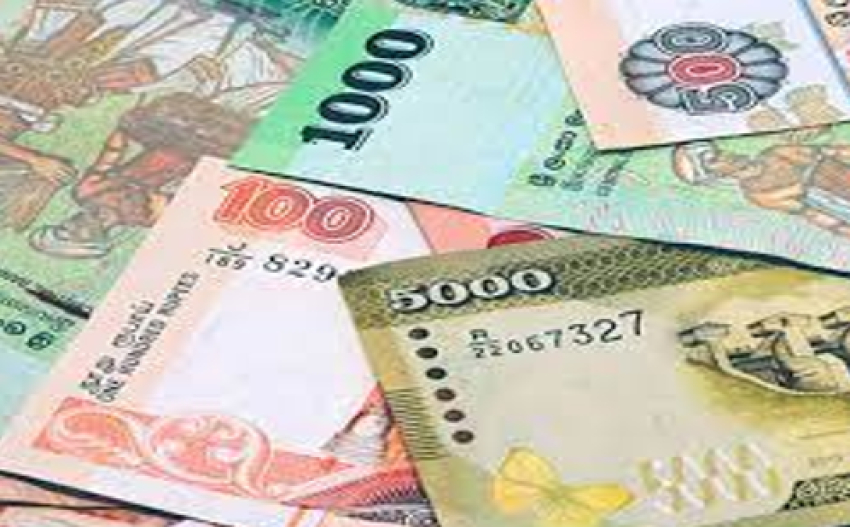Sri Lanka remains at the headlines dominating international news this week following the terrorist attack on churches and hotels last Sunday, with considerable interest being expressed on the new terrorist situation in this country, and concerns about the spread of Islamic terror in South Asia.
World politics and the global oil industry were struck by a key US move against Iran this week. US President Donald Trump, while affected by the material in the Robert Mueller Report on alleged obstructions of justice in US politics, took a major step against Iran, ending the temporary waivers granted to several countries to keep importing Iranian oil while avoiding sanctions imposed by the US on the Iranian oil industry. The decision caught energy markets off guard, leading to spikes in oil prices.
This is the Trump administration’s latest confrontational move against Iran, after unilaterally withdrawing last year from the nuclear deal negotiated between Iran and world powers, placing sweeping sanctions on senior Iranian officials and various sectors of the country’s economy. It has also listed Iran’s Revolutionary Guard as a “foreign terrorist organisation.”
The US is now raising the stakes for other major powers on dealing with Iran. “Any nation or entity interacting with Iran should do its diligence and err on the side of caution,” Secretary of State Mike Pompeo warned. “The risks are simply not going to be worth the benefits.”
The United States is reportedly banking on Saudi Arabia and other Arab major oil producers to help offset the Iranian oil taken off the market. However, energy experts warn the situation may also lead to jacking up oil process internationally and for the average Americans, too. Iran exports roughly 1 million barrels of oil daily, after the US sanctions of last year, half of which go to China. Other nations that obtained waivers include India, Turkey, South Korea and Japan — all major trade partners of the United States, that are not pleased with the latest Washington move. Both Chinese and Turkish officials issued strong statements decrying U.S. unilateral sanctions and indicated their desire to continue doing business with the Iranians. India is likely to continue purchasing reduced amounts of Iranian oil on rupee payments.
Trump’s hostility to Iran has already antagonized US allies in Europe, who are still trying to persuade Tehran to remain within the nuclear deal. The further US confrontation with Iran is expected to affect the economies of many countries with a rise in oil prices.
UK breaks with US
The United Kingdom (UK) took an important move away from its closest ally, the US, by letting Chinese telecommunications giant Huawei help build “non-core” parts of the country’s next 5G infrastructure. The decision by Theresa May’s Conservative government has drawn considerable criticism from many UK politicians who fear Huawei’s supposed ties to the Chinese government may open British citizens, companies, and government agencies to cyber attacks and other forms of espionage. The decision is a notable departure from other members of the alliance of countries – US, UK, Canada, Australia and New Zealand (NZ) -- on matters of national security. Australia and NZ have fallen in line with the US objections to Huawei services to the 5G roll out in digital communication technology. Some European countries, especially France and Germany, are still considering the US objections. The Trump administration seeks to pressure its allies to stop using Huawei equipment, after banning US government agencies and contractors from using Chinese companies’ products in official work. Meanwhile, Huawei denies any involvement with its country’s government, while questions over Chinese government involvement have hung over most dealings with the country’s biggest players in digital communication. There is an increasing influence of Chinese companies, especially Huawei and ZTE, over telecom component suppliers, affecting the next phase of the Smartphone industry and Digital Technology.
Many analysts see the US opposition to Huawei and other Chinese digital companies as concern about China’s actual progress in this field of technology, which is reportedly at least one year ahead of the US.
North Korea and Russia
North Korean leader Kim Jong Un’s arrival in Russia this week for a summit with President Vladimir Putin, in the Pacific port city of Vladivostok, saw a major change in global politics. This visit comes after the failure of the US to persuade North Korea to stop its nuclear and rocket science research and trials, after two summits between US President Donald Trump and Chairman Kim Jong Un. The US has not given in to North Korea’s request to reduce sanctions against the country, despite President Trump stating that his meetings with Kim Jong Un were very warm, friendly and had great promise for peace in the Korean Peninsula. Kim's Russia trip comes about two months after his second summit with Trump failed, because of disputes over U.S.-led sanctions on North Korea. Kim Jong Un is the first North Korean leader to travel to Russia since his late father, Kim Jong Il, visited in 2011.
Analysts report that Kim could try to bolster his country's ties with Russia and China, with increased frustration at the lack of U.S. steps to match the partial disarmament steps he took last year.
It's not clear how big a role Russia can play in efforts to restart the nuclear diplomacy. But many see this summit as an opportunity for President Putin to try to increase his influence in regional politics, and the standoff over North Korea's nuclear programme. North Korea is an immediate neighbour of Russia. Some see a Russia-China roadmap towards a step-by-step approach to solving the nuclear standoff, and calling for sanctions relief and security guarantees to Pyongyang. Russia would like to gain broader access to North Korea's mineral resources, including rare metals. Pyongyang, for its part, covets Russia's electricity supplies and wants to attract Russian investment to modernize its dilapidated Soviet-built industrial plants, railways and other infrastructure.
Egypt’s Sisi – More Time and Powers
Egypt has voted to give President Abdel Fattah el-Sisi sweeping powers that could keep him in office until 2030. Egyptians voted this week to pass a number of major changes to the country's constitution in a three-day referendum, with 88.83% voting in favour of tightening strongman leader el-Sisi’s grip on power. Fourteen amendments to Egypt's 2014 constitution were up for a vote, as well as two new articles. Egypt's parliament voted last week in favour of the changes.
One amendment would extend a presidential term from four to six years. It would also add two more years to Sisi's current term and allow him to seek re-election for another six-year term in 2024.
Another measure would expand Sisi's power over the legislative branch by creating an upper house. The president would be able to handpick a third of the members. The lower house would be reduced from 596 to 450, with at least 25% of seats reserved for women.
The revised charter would also give the president new authority to appoint members of the judiciary.
Opposition activists have accused Sisi's government of pressuring people to vote in its favour. Opposition members of parliament and Egyptian critics abroad have said voters faced intimidation and “vote buying,” at this referendum. Activists have also posted photos to social media that showed white cardboard boxes packed with groceries being handed out to people after they voted.
Supporters of the changes said they would bolster Egypt's economy, which is struggling to recover from the political turmoil of recent years and strengthen security, while opponents see a further step toward authoritarianism.
“These amendments aim to expand military trials for civilians, undermine the independence of the judiciary, and strengthen impunity for human rights violations by members of the security forces, furthering the climate of repression that already exists in the country,” Amnesty International's deputy director for the Middle East and North Africa, Magdalena Mughrabi, said last week in a statement.
Sisi, a former Army General, became president in 2014 after a coup the previous year. He was re-elected in 2018 with 97% of the vote. As president, he has cracked down on dissent, with tens of thousands of political prisoners believed to be held in Egypt's jails.
President el-Sisi is increasing contacts with African nations in recent months. While Egypt is the current Chair of the African Union, there are concerns among pro-Sisi activists that recent developments in Algeria and Sudan, where long-standing leaders have been overthrown by public protests may spread to Egypt, too.
Ukraine – Comedian President
Ukrainian comedian Volodymyr Zelensky scored a landslide victory in the country's presidential election this week, obtaining more than 73% votes, with incumbent Petro Poroshenko trailing far behind on 24%.
Mr. Zelensky, 41, a political novice, is best known for starring in a satirical television series Servant of the People, in which his character accidentally becomes Ukrainian President. He did not have rallies and political activity in his campaign but used social media messages based on his TV comedy on fighting corruption.
A comedian though trained as a lawyer, Zelensky has 4.2 million followers on Instagram, has huge funds from the TV production company doing his programme, and is also linked to a powerful oligarch managing TV productions.His pledge to the people on being elected was “I will never let you down,.”
Among the key issues he will face in the presidency is dealing with Russia, over Russian influence and control over eastern Ukraine, and the Russian hold over Crimea. Clashes in eastern Ukraine have led to several thousand deaths in recent years. Former President Poroshenko, who was in power since 2014, admitted defeat after the first exit polls were published, and said Mr. Zelensky was too inexperienced to stand up to Russia effectively.
The pressure will now be on Mr. Zelensky to demonstrate that he knows what he is doing, when faced with the simmering war with Russian-backed rebels in the east.




















